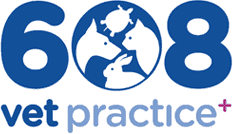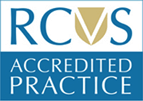Unfortunately, it is all too easy for pets to pick up and chew or eat something they shouldn’t, so it’s important that we make you aware of what is and isn’t dangerous!
Substances which can be poisonous for dogs & cats:
- Slug pellets
- Chocolate
- Human medicines
- Car anti-freeze
- Plant bulbs
- Raisins, grapes & fruit cake
- Onions
- Avocados
- Lilies
- Certain nut
- Liquorice
- Xyilotol sweetened foods and sweets
- Alcohol
- Inappropriate flea preparations
- Spring bulbs
Due to their nature, cats are more prone to coming in contact with lilies and anti-freeze, whereas canines’ curiosity and sweet tooth mean they often eat chocolate and human medicines.
Plants that can be Poisonous for Rabbits:
In theory if a rabbit has plenty of choice they will choose wisely, but if there is little variety to eat they eat what is available regardless. However, it is better to assume that they may make a mistake, and avoid known poisonous plants.
- Rhubarb
- Lettuce (probably)
- A lot of Wood Treatments
- Branches of Stone-fruit Trees
- Laurel
What to do if you think your pet has been poisoned…
Don’t panic - remember few cases have fatal outcomes when prompt action is taken.
- Remove your animal(s) from the source of poison – protecting yourself if necessary
- Contact the surgery on 0121 705 3044 for advice immediately, especially if your animal is unwell, and be ready to provide information on when, where and how poisoning occurred as well as the quantity consumed.
- If we instruct you to come in to the practice, please bring a sample of the poison and the packaging with you – it may have some important information we require.
- If the skin is contaminated then wash with water ONLY.
- DO NOT try to make your animal vomit unless instructed to do so.
Preventing poisoning in the home…
It’s a bit like “child proofing” your home – pets can be just as curious and mischievous so taking practical steps will reduce the risk of poisoning incidents.
- Keep all medicine, human and veterinary, out of reach in a locked cupboard
- Never give animals medications intended for human use – only medicines prescribed by your vet
- Do not leave medicines in a handbag, or a on a work surface.
- Wash hands after handling your own medicines.
- Some foods (for example chocolate, onions, grapes etc.) can be toxic. Do not allow animals access to foods intended for human consumption. Pets should only be given foods and treats formulated for animals.
- Some plants are hazardous (for example, lilies to cats, daffodils) – keep house plants and floral displays out of reach of pets.
- Restrict access to cleaning, DIY and car products (for example fuels, antifreeze, spirit, etc)
Preventing poisoning in the garden or open spaces…
- Prevent access to gardens where pesticides or fertilisers have recently been used, especially slug pellets and rodent baits. Although access to such baits can be reduced by placing them in narrow tubes etc, rat poisons are passed down the food chain and can remain a risk.
- Keep pesticides/herbicides in a safe and inaccessible place – away from pets
- Never leave buckets or watering cans with chemical residues – if rain falls in these the pet might innocently drink from it and ingest the chemical
- Do not allow animals to drink from ponds/puddles that appear oily or otherwise polluted
- Be careful not to leave plant bulbs lying around
If you think your pet may have been poisoned, call the surgery immediately, 24/7 on 0121 705 3044.
With your permission, we may need to contact the National Poisons Bureau, for which there is a charge.
This information is courtesy of ‘Pets and Poisons’ produced by the “BVA Animal Welfare Foundation” in association with the “Veterinary Poisons Information Service”.




